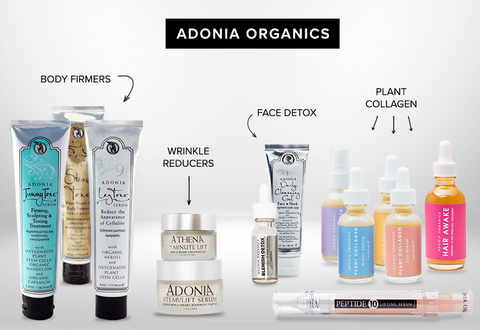If you find yourself frequently asking those around you, "Is it hot in here?" and receiving confused looks in return, you may be at the beginning of a new phase in your life. Perimenopause and menopause are significant phases in a woman's life that bring about a variety of physical and mental changes. These transitions mark the end of the reproductive years and can be accompanied by a range of symptoms that affect overall well-being. Understanding these changes and exploring natural ways to manage them can help women navigate this period with greater ease.
Understanding Perimenopause and Menopause
Perimenopause is the transitional period leading up to menopause, typically starting in a woman's 40s but sometimes earlier. It can last for several years and is characterized by fluctuations in hormone levels, particularly estrogen and progesterone. This stage continues until a woman has gone 12 consecutive months without a menstrual period, at which point she is considered to be in menopause.

Menopause itself is defined as the cessation of menstruation and the end of fertility. It usually occurs between the ages of 45 and 55 but can vary widely among individuals. The hormonal shifts during this time can lead to a variety of symptoms and changes in a woman's body and mind.
Physical Health and Appearance
One of the most noticeable changes during perimenopause and menopause is the impact on physical health and appearance. Some of the common symptoms and effects include:
Hot Flashes and Night Sweats: These are among the most common symptoms, affecting a majority of women. They can cause sudden feelings of intense heat, sweating, and discomfort, often disrupting sleep and daily activities.

Weight Gain and Body Composition Changes: Hormonal changes can lead to a redistribution of body fat, particularly around the abdomen. This can be distressing for many women who struggle to maintain their pre-menopausal body shape.
Skin and Hair Changes: Reduced estrogen levels can lead to thinner, less elastic skin and a decrease in collagen production. Hair may become thinner and more prone to breakage, and some women may experience hair loss.
Bone Density Loss: The decline in estrogen can also contribute to a decrease in bone density, increasing the risk of osteoporosis and fractures.

Mental Health and Cognitive Changes
The hormonal fluctuations during perimenopause and menopause can also have significant effects on mental health and cognitive function. Some of the common issues include:
Mood Swings and Irritability: Many women report increased mood swings, irritability, and even feelings of depression or anxiety. These mood changes can be triggered by hormonal imbalances, sleep disturbances, and the psychological impact of aging.

Cognitive Changes: Some women experience difficulty with memory, concentration, and focus during this time, often referred to as "brain fog." This can be frustrating and may affect daily functioning and job performance.
Sleep Disturbances: Insomnia and other sleep issues are common during perimenopause and menopause, often due to night sweats or anxiety. Poor sleep can exacerbate other symptoms and contribute to mood disturbances.

Increased Stress and Anxiety: The physical and psychological changes during this period can lead to increased stress and anxiety, impacting overall well-being and quality of life.
Impact on Appearance
The changes in appearance during perimenopause and menopause can be challenging for many women. The loss of skin elasticity, changes in body composition, and hair thinning can affect self-esteem and body image. These changes are a natural part of aging, but they can still be difficult to accept.
Adonia Organics Has You Covered

Derived from the wisdom of the Ancient Greek Isles, Adonia Organics has formulated plant-based skincare treatments that work almost instantly. Just as our name describes, all of our products are 100% organic, cruelty-free, non-toxic, paraben-free, non-GMO and bursting with antioxidants. The creators of Adonia Organics believe in the power of natural beauty enhanced. Using the superpowers of plant stem cells along with organic oil extracts, we have a created products that offer fast results and a 30-day money-back guarantee.
Five More Organic Solutions to Ease the Transition
Balanced Diet and Nutrition: Eating a well-balanced diet rich in fruits, vegetables, lean proteins, and healthy fats can help manage symptoms. Foods high in phytoestrogens, such as soy products, flaxseeds, and whole grains, can provide natural estrogen-like effects that may help balance hormone levels. Additionally, adequate calcium and vitamin D intake is crucial for maintaining bone health.

Regular Exercise: Engaging in regular physical activity can help manage weight, reduce the risk of osteoporosis, and improve mood and energy levels. Weight-bearing exercises, such as walking, jogging, and strength training, are particularly beneficial for maintaining bone density. Yoga and other forms of exercise that promote flexibility and stress reduction can also be helpful.
Herbal Remedies: Several herbal remedies have been found to alleviate menopausal symptoms. Black cohosh, red clover, and evening primrose oil are commonly used to reduce hot flashes and mood swings. However, it's important to consult with a healthcare provider before starting any herbal supplements, as they can interact with medications and have side effects.

Mindfulness and Stress Reduction Techniques: Practices like meditation, deep breathing exercises, and mindfulness can help manage stress and anxiety. These techniques promote relaxation and improve emotional well-being. Cognitive-behavioral therapy (CBT) has also been shown to be effective in managing mood swings and anxiety during menopause.
Adequate Sleep Hygiene: Improving sleep hygiene can help manage insomnia and other sleep disturbances. This includes maintaining a regular sleep schedule, creating a comfortable sleep environment, and avoiding stimulants like caffeine and alcohol before bed. Relaxation techniques, such as a warm bath or reading, can also help promote better sleep.
Things May Be Changing but You Can Control How Much
Perimenopause and menopause are natural stages in a woman's life that bring about significant physical and mental changes. Understanding these changes and adopting healthy lifestyle practices can help ease the transition and improve overall well-being. While every woman's experience is unique, embracing a holistic approach that includes diet, exercise, stress management, and natural remedies can empower women to navigate this life stage with confidence and grace.

